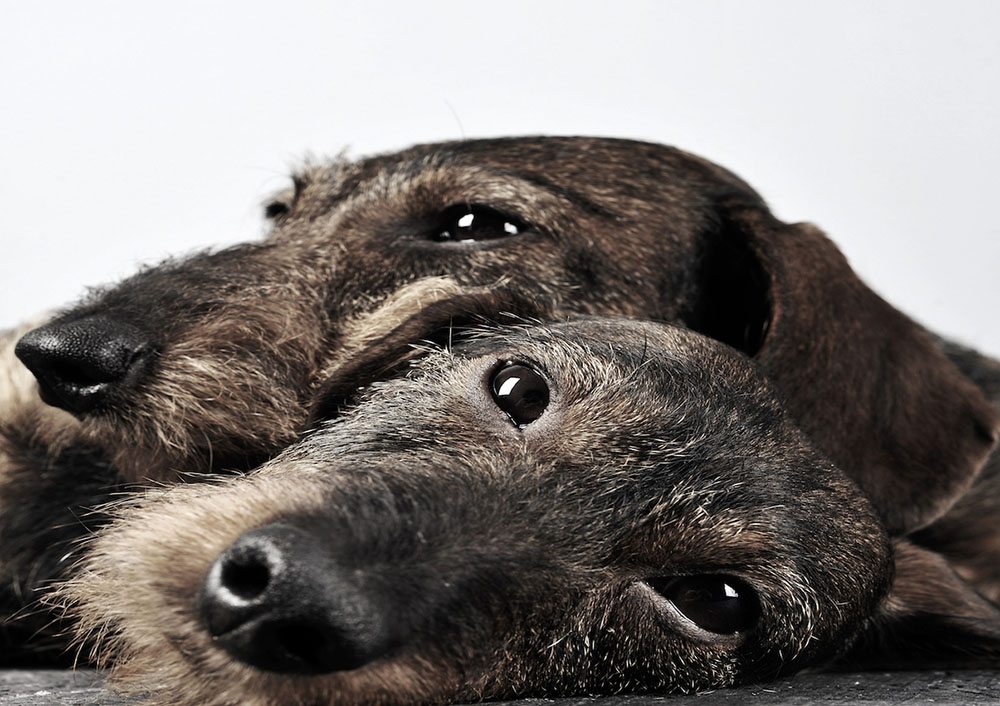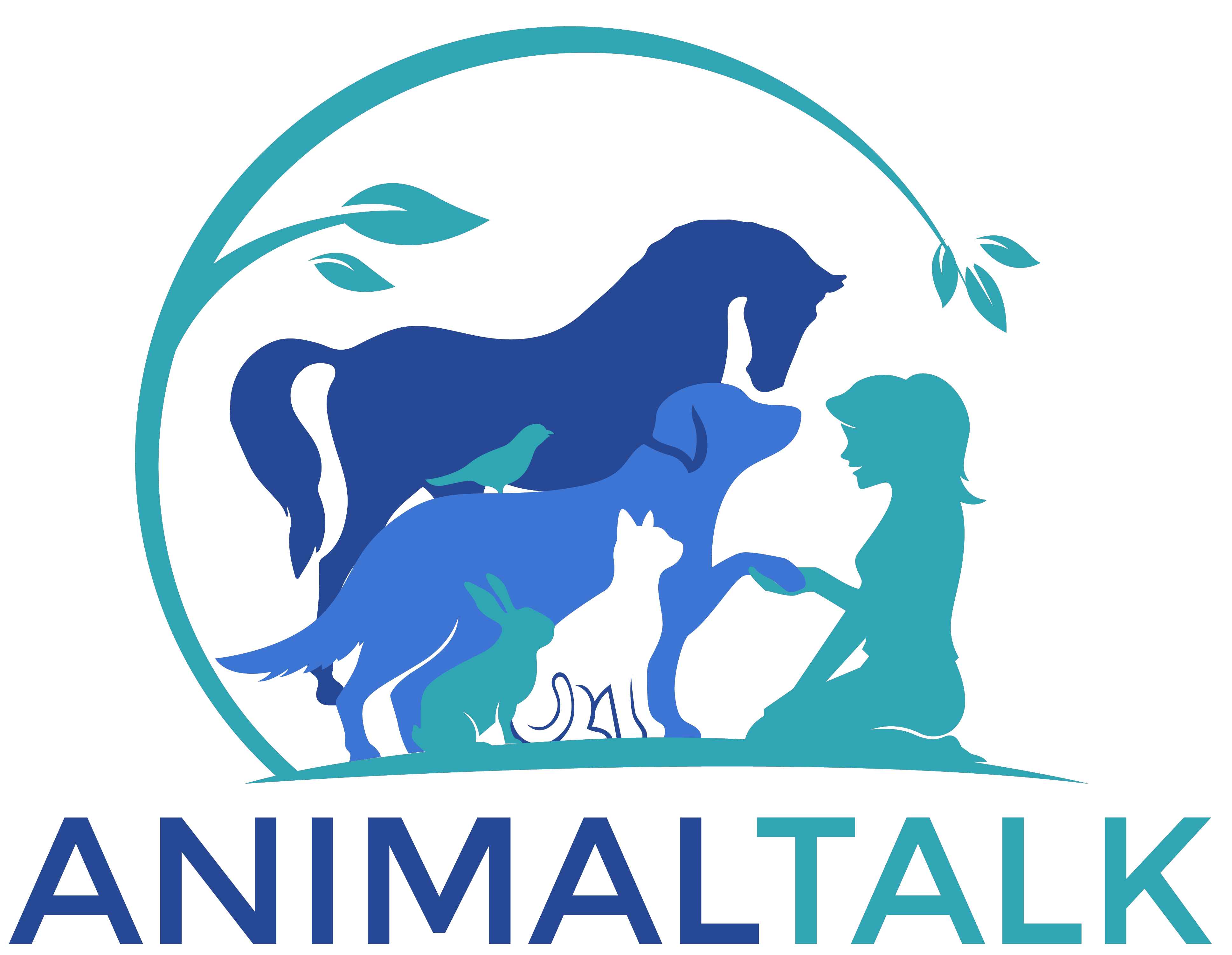
[vc_row][vc_column][vc_column_text]For man’s best friend, being a part of a dog pack is as natural as breathing. Dogs naturally follow a leader; whether it is human or canine. However, when you are not present, your dogs will have already have established a hierarchy within their pack. All dogs in a pack have a role to play and that can have a significant impact depending on the situation.
My two Japanese Spitz dogs Akeira and Savannah have established in their pack that Akeira is the leader. Akeira is the protector and guard dog of the two; Savannah follows her lead when to bark, to play and how to react in outside situations. She is quite happy to sit back while Akeira is in the forefront of most that goes on. Akeira once told me that Savannah was her dog and she was our dog. That I didn’t need to discipline Savannah as she would do that! Of course I had other ideas and have managed to keep my leadership so far, which is always a work in progress.
Whilst it is quite normal for dog packs to be inseparable, we do need to address what will happen if one of the pack members is no longer present. It is significant when a dog pack member passes where they sit in the hierarchy. I usually find that the lead dog copes the best because they are use to making the decisions, are usually in the limelight of most events and coping with leadership situations. Apart from their physical presence and companionship of their pack member, which of course is a great loss, life continues for them in a more usual fashion.
But what if it is the follow dog? What will their reaction be? How will they cope being thrust into the limelight and attention, especially if there was only them and their leader. They will, all of a sudden be in roles they have not experienced before which could cause great distress. Just like us, our animals feel loss, sorrow and grief, and just like us they will mourn in their own ways too. Your dog may lose their appetite for days, or sleep in spots that they don’t usually sleep in, or even may not feel like going for a walk or play time. They may be listless, suppressed and completely out of character. It is normal and understandable for your dog to act this way when grieving – after all it was their best friend who passed too.
When the alpha dog passes on, the follow dog may feel lost and begin to fear things that they did not before. They’re used to trusting the other dog’s lead and this can be quite frightening for them. The other determining factor is YOU! You are grieving also with the loss of your loved one, and to them you are not yourself. If you are their human leader can you see how disconcerting this would be, even though a normal response to have your leader in distress, or just very distant. As animals read energy, they can see yours has drastically changed and they are not sure what to do about it. There are coping strategies to help your dog and you grieve, such as completely maintaining the routine, playing one on one activities together and most importantly giving them time and you to mourn in your own way. It takes time![/vc_column_text][us_separator type=”invisible” size=”small”][us_single_image image=”8279″ size=”full” align=”center”][us_separator type=”invisible” size=”small”][vc_column_text]For those who still have their dog pack altogether, we can pre-empt the separation anxiety and prepare our dogs by following some simple to create more independence individually to our dogs:
- Take your dogs for separate walks occasionally. If you have someone to help, you could each walk a dog for 15 minutes and then come together at a common place. If you have more than two dogs, try leaving one dog at home and rotating their turns in walking for each outing. This will help build independence for the dogs on the walk – they will feel more confident in reacting to outside situations and they will also learn to look to you as their leader. The dog left at home will learn how to be alone without people or dogs. This will benefit them greatly and reduce the separation anxiety from the people and the dogs.
- Leave one dog in the backyard/courtyard or in a separate living area whilst the other dog is with you or left to his or her own devices. Whilst it is great seeing your dogs together at home, they must get used to being alone at times.
- Taking turns with your dogs for adventures in the car. It will teach both dogs to enjoy independent outings as well as together.
- Teach some one on one activities with your dogs. This is a great time for your dog to bond with you – they will look forward to your special time together and it won’t be so lonely when one passes on before the other.
- Separate them into different sleeping quarters, every now and then. This may be a little difficult in the beginning, but it will help your dog to feel comfortable and safe on his or her own in time to come. If they both sleep in a room with you then it may not be necessary to separate them.
Please keep in mind that these solutions are not to permanently separate your dogs; you would try one solution at a time and practice a few times a week to help your animals adapt to their newfound independence. Whilst we can never be truly prepared when one of our beloved animals passes on, trying these solutions can help to make it a lot easier for our animals to adjust and for us too.
If one of your dogs has passed and you need to know how best to assist them – contact us[/vc_column_text][/vc_column][/vc_row]
